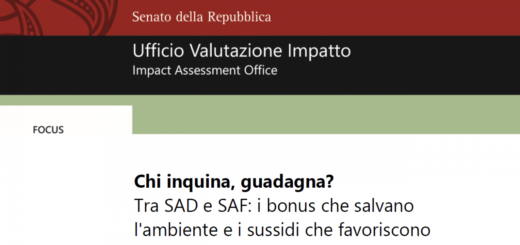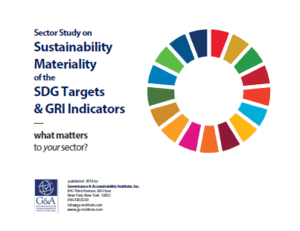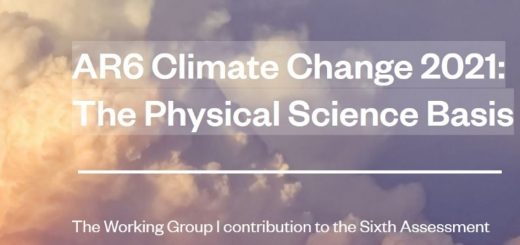Archivio Mensile: Gennaio 2020
Calcolato per la prima volta l’impatto dei big dell’oil & gas. Una manciata di loro basta a compromettere il clima mondiale. E molti “cattivi” sono pubblici. Bastano le maggiori 20 multinazionali del settore del gas e del petrolio per produrre oltre il 30% delle emissioni industriali cumulative globali. Link: https://valori.it/20-multinazionali-del-petrolio-e-gas-producono-da-sole-il-30-delle-emissioni/
Il recente Draft per la Commissione diritti umani del Parlamento europeo analizza il tema dell’accesso alla giustizia in Europa delle vittime di violazioni di diritti umani, consumate da imprese e multinazionali in paesi terzi extraeuropei. Link: https://www.facebook.com/groups/386907808724800/permalink/400959660652948/
Gli obiettivi per ridurre le emissioni di gas a effetto serra (GHG) sono considerati “basati sulla scienza” se in linea con il livello di decarbonizzazione richiesto per mantenere l’aumento della temperatura globale al di sotto dei 2 gradi rispetto alle temperature preindustriali, come descritto nel Fifth Assessment Report dell’Intergovernal Panel on Climate Change (IPCC), e nell’Accordo di...
Ogni anno lo Stato spende 76 miliardi di euro per erogazione di incentivi e concessione di esenzioni ed agevolazioni, alcune delle quali sono ambientalmente dannose: si tratta dei SAD (Sussidi Ambientalmente Dannosi) che nel 2016 sono ammontati a 16,2 miliardi di euro, mentre i SAF (Sussidi Ambientalmente Favorevoli) sono stati “solo” 15,7 miliardi. Link: https://www.reteclima.it/2018-il-punto-sui-sussidi-ambientalmente-dannosi-sad/
Governance & Accountability Institute is pleased to present the highlights of its comprehensive “Sector Study on Sustainability Materiality of the SDG Targets GRI Indicators” research project. Our team examined the Global Reporting Initiative’s GRI G4 roster of corporate sustainability reports that were published from March 2016 through March 2017. Link: https://www.ga-institute.com/SDGsWhatMatters2018
In January 2019 the TEG published its report on climate-related disclosures. This report corresponds to task 4 of the TEG’s mandate, which is to “Develop climate-related metrics in the context of its work on an EU taxonomy allowing improving disclosure on climate-related information and publish the outcome in a report.” Link: https://ec.europa.eu/info/publications/190110-sustainable-finance-teg-report-climate-relateddisclosures_it
Global warming is expected to result in an increase in work-related heat stress, damaging productivity and causing job and economic losses. The poorest countries will be worst affected. An increase in heat stress resulting from global warming is projected to lead to global productivity losses equivalent to 80 million full-time jobs in the year 2030, according to...
The restoration of forested land at a global scale could help capture atmospheric carbon and mitigate climate change. Bastin et al. used direct measurements of forest cover to generate a model of forest restoration potential across the globe (see the Perspective by Chazdon and Brancalion). Link: https://science.sciencemag.org/content/365/6448/76
The Bonn Challenge is a global effort to bring 150 million hectares of the world’s deforested and degraded land into restoration by 2020, and 350 million hectares by 2030. It was launched in 2011 by the Government of Germany and IUCN, and later endorsed and extended by the New York Declaration on Forests at the 2014 UN...
Studio epidemiologico nazionale dei territori e degli insediamenti esposti a rischio da inquinamento. Quinto Rapporto. Link: http://www.epiprev.it/pubblicazione/epidemiol-prev-2019-43-2_3suppl1
















